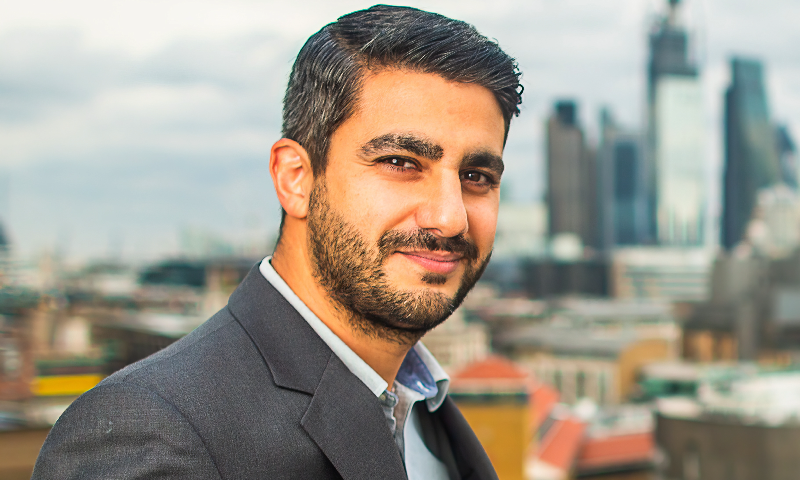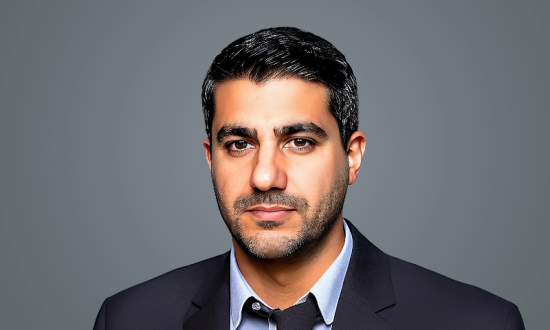Ricky Constantinides is an accomplished and influential leader in the Financial Services sector, known for his pioneering work in the UK Banking industry, where he played a pivotal role in introducing innovations like contactless payment, open banking, and cloud integrations. During his time at HSBC he directed the product development of their award-winning self-service challenger product, Kinetic and more recently as Head of Product for the London Stock Exchange Group (Refinitiv), Ricky drove one of the most prominent data and analytics platforms in the industry. Notably, he also played a key role in the transformative Microsoft Partnership with LSEG, a ground-breaking initiative set to reshape the way data interoperability is shared across applications in real time, underscoring his lasting impact on the industry.
Ricky has also received numerous accolades throughout his illustrious career for his exceptional product leadership and transformative successes. Beyond his professional achievements, his dedication to digital transformation is evident in his academic research, which focused on digital AI self-service.
Recently, in an exclusive interview with Digital First Magazine, Ricky shared his career trajectory, the key responsibilities as former Head of Product at LSEG and current position as Executive Product and Data advisor, the most challenging and most rewarding aspects of his work as a product leader, significant career milestones, future plans, and much more. The following excerpts are taken from the interview.
Ricky, please could you tell us about your background and the areas that interest you?
My university experience allowed me to explore various academic paths. I hold a Foundational of Engineering degree, a Bachelor of Science in Technology and Design, and a first class Master’s degree in AI-led digital self-service solutions for the financial sector. During my university years, I also served as a lecturer, supporting students in utilising computer modelling applications which fed my enthusiasm for mentoring.
My early passion revolved around Cybernetics, but my journey eventually led me to the dynamic world of digital-led products. I encourage others to embrace career pivots and follow emerging passions, as I have done. Presently, my focus lies on creating exceptional customer-centric products through efficient and transformative teams.
Throughout my career, I’ve developed expertise in team collaboration, and developing efficiency, particularly in complex environments. I take pride in having had the opportunity to work with remarkable individuals who have contributed to my growth and success.
Could you share some of your key responsibilities during your time as Head of Product at LSEG and your current position as Executive Product and Data advisor?
As the Head of Product at LSEG, I oversaw the product and data service line for Refinitiv Workspace. I successfully facilitated the dissemination of petabytes of information to our Investment Bankers, Traders, and Wealth customers. The development strategy for this billion-pound product required a unique approach, considering the diverse communities it served and ensuring its superiority over Eikon, its predecessor. I leveraged my data aggregation experience, along with my exposure to cloud and mobile technologies to support my current clients with building out their strategic roadmaps to secure their market position.
You also mentor and coach product managers, could you please tell us about your motivations to support others in a similar field?
Mentoring product managers is a rewarding undertaking for me, and it stems from a combination of personal and professional motivations. Firstly, I’ve been fortunate to have received guidance and mentorship from experienced professionals throughout my career, and I understand the immense value it can provide. I’ve seen how the right mentor can accelerate one’s growth, help them navigate challenges, and open doors to opportunities they might not have otherwise encountered. I believe in paying it forward and contributing to the growth of the product management community.
Secondly, the field of product management is constantly evolving, with new technologies, methodologies, and challenges emerging regularly. By supporting others, I stay connected to the latest trends and innovations in the industry. It’s a two-way learning process – I gain fresh perspectives from mentees and stay at the forefront of the field, while also helping them develop their skills and advance in their careers.
Moreover, I’m passionate about fostering talent and supporting the next generation of product managers. The product function is often complex and multifaceted, requiring a unique skill set. When I see someone I’ve mentored excel in their role and contribute to innovative solutions, it’s a source of pride and satisfaction.
Throughout your impressive two-decade career, you’ve effectively overseen international product portfolios across the entire lifecycle. What has been the most challenging aspect of your career as a Product Leader? And what do you love most about your work?
If I were to pinpoint the most challenging aspect, it would be the ever-evolving landscape of technology and customer expectations. The pace of change in the digital world is persistent, and staying ahead of the curve, particularly in the financial services sector, has been a continuous challenge, yet enjoyable. Adapting to new technologies, regulations, and shifting customer preferences requires constant vigilance and a commitment to learning and innovation. It’s demanding but also incredibly rewarding because it keeps the role dynamic and exciting.
What I love most about my work is the opportunity to create and deliver products that have a meaningful impact on people’s lives. Being able to conceptualise, develop, and bring a product to market, and seeing it make a positive difference, whether it’s in retail or the private sector, is immensely gratifying. I also relish the collaborative aspect of my work, working closely with talented teams both internally and externally to solve complex problems and bring innovative solutions to the market. This collaborative spirit and the pursuit of innovation keep me energised and passionate about what I do.

What do you think will be important for product leaders in the next 5–10 years? What are some trends you see?
Well, it would be remiss of me not to mention AI and the growing trend of automation evolving to intelligent decision-making. Data analytics and AI will play an increasingly vital role in product development. Product leaders will need to harness data to make informed decisions, understand customer behaviour, and tailor their offerings to meet evolving needs.
The customer experience will remain a top priority with technology being an enabler, not a determinant factor. Product leaders will need to leverage both collected data sets and engagements to address customer pain points. The expectation will be that every customer will have a personalised workflow and experience on the channel of their choosing.
It’s also important to address the ‘How’ in product execution, agility has been around for a long time now, but several large organisations still see this as a nice to have. Agile methodologies and lean product development will continue to gain prominence. Being able to iterate quickly, respond to market feedback, and adapt to changing circumstances will be essential.
Lastly, the growing need to be mindful of sustainability and our social responsibility is critical. Sustainability concerns will increasingly influence product development. Product leaders will need to consider sustainability and ethical sourcing, responding to growing consumer demand for eco-friendly and socially responsible solutions. ESG has allowed for better transparency in the financial sector allowing a clear view of which companies are taking their responsibilities seriously.
What do you feel has been your ‘career-defining’ moment?
A pivotal moment in my career occurred during my time as a consultant where I worked for a small firm for five years. This opportunity allowed me to engage with a diverse clientele, and it proved instrumental in shaping my professional journey.
During this period, I perfected essential skills such as crafting compelling client pitches and delivering solutions. Moreover, I had the privilege of collaborating with different teams up to the board level. These experiences instilled in me the life skills that are paramount in my career today: communication, networking, and stakeholder management.
In my view, effective communication and adept stakeholder management are fundamental to success within any organisation. It’s not merely about the best intentions or technology; it’s about the ability to secure buy-in and take stakeholders on that journey with you. The exposure I gained early in my career was a catalyst for honing these critical skills, enabling me to navigate the intricate web of corporate dynamics later on.
This early experience also facilitated the growth of my broader skill set, encompassing coding, design, and market analysis. This multidimensional skill has been invaluable in my journey towards becoming a more well-rounded and effective product manager.
Where would you like to be in the next 5 years?
In the next five years, I would aspire to continue to be at the forefront of innovation and product transformation, continually pushing the boundaries and raising the bar for what’s possible in this dynamic field.
First and foremost, I see myself fully immersed in the world of AI-driven product development. AI’s role in shaping the future of products is undeniable, and I want to be a key player in harnessing its potential. I aim to deepen my expertise in AI, focusing on intelligent decision-making and the integration of AI into the very core of our product strategies.
Personalised workflows and experiences, tailored to individual preferences and needs, will be the standard, not the exception powered by intelligence. Lean product development will remain a cornerstone of my approach. I intend to be a driving force behind the agile frameworks, advocating for their widespread adoption in organisations, and fostering an environment where rapid iteration and responsiveness to market feedback are the norm.
Which technology are you investing in now to prepare for the future?
In my experience working with tier-one banks and data providers, I’ve witnessed the continual evolution and substantial funding of several key technologies. When advising clients across various financial sectors, I emphasise the importance of staying competitive and relevant through innovation.
AI remains a central focus for most organisations, as it has the potential to revolutionise decision-making processes. Additionally, I’m closely monitoring Quantum computing, which, despite being in its early stages, holds the promise of transforming encryption and data analysis. Cloud technology plays a pivotal role in our ability to scale and deploy products swiftly. Many financial institutions have invested in cloud infrastructure to harness its scalability, flexibility, and cost-efficiency, particularly as product offerings expand. This shift toward fully autonomous cloud services could pave the way for true Omni-channel solutions.
Furthermore, I recognise the significance of data security and trust in financial services. Hence, I’m exploring the potential applications of blockchain and distributed ledger technology, particularly in areas like supply chain management, digital identity, and secure transactions.
These technologies, when combined, have the potential to create a real-time, secured global network for sharing and conducting data transactions, setting the stage for a dynamic and innovative future in the financial sector.






